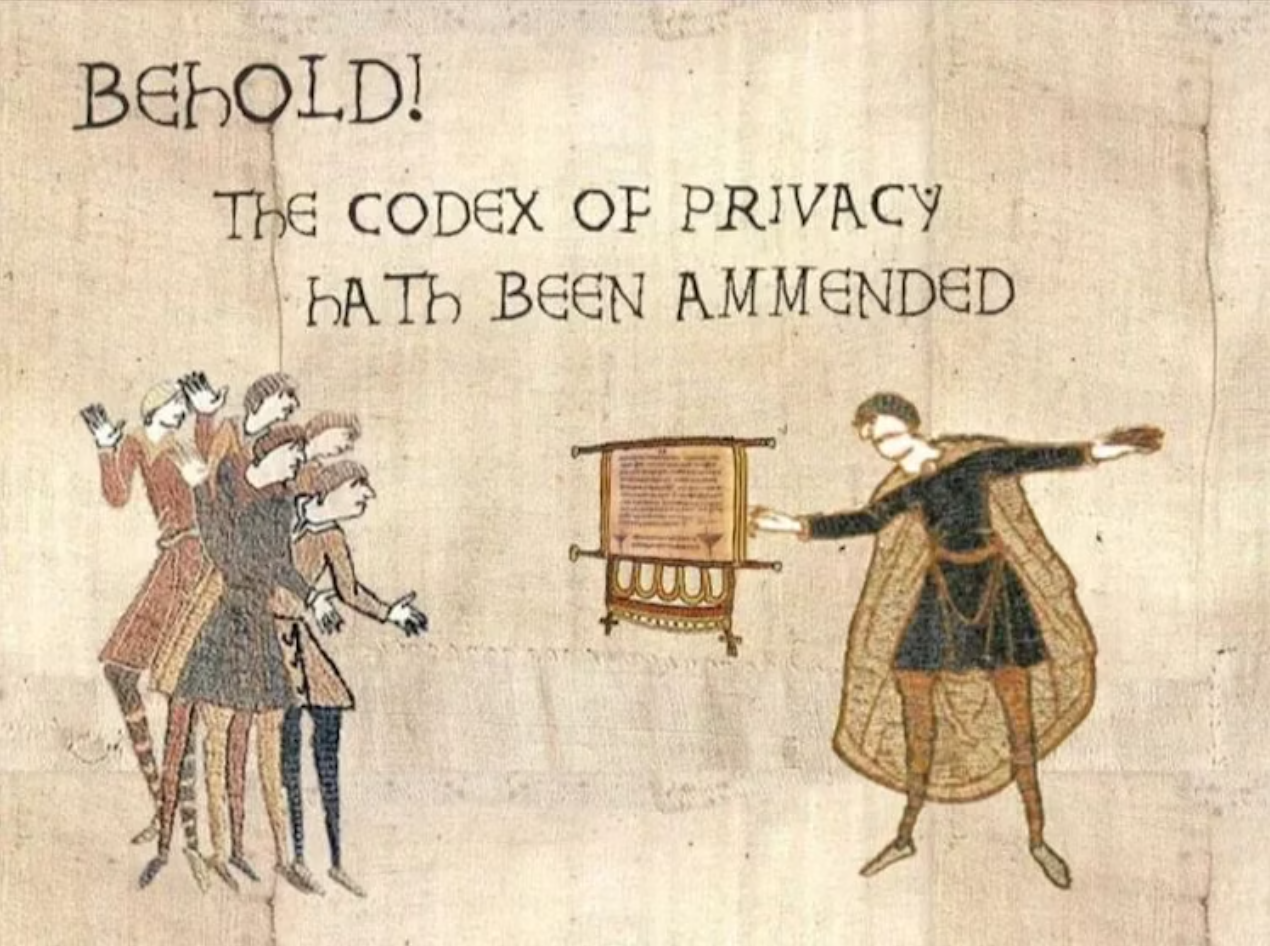
Hi there, fellow tech enthusiasts!
We are a team of developers based in Estonia. Our flagship project is Eppie — a decentralized email with full account ownership. While it’s approaching Beta, we’d like to introduce it to the community and share an interesting conversation we had in our team recently on the idea of privacy.
Have you ever read a privacy policy? Why would you. They are all the same, and we can be reasonably sure whatever is written there is meant to protect our data. Tech companies do take these seriously, at the very least to avoid huge fines — the bigger the company the stronger the privacy. Yet there’s still something wrong with personal data in the world. Maybe privacy itself is wrong.
Web3 projects are almost never about data privacy. Web3 likes to call it ownership. So, what’s the difference?
Let’s take a more traditional type of asset: when we say a land plot belongs to someone, we mean it is within their rights to access the land, build on it, make profit of it, invite friends for a party or disallow anybody to enter the property, or burn down whatever is built on it (if it belongs to them).
This is the legal definition of ownership: when one is in possession of some thing, they can access it, use it for their benefit, and have the right to dispose of it. And they can authorise others to have some of the above rights in a limited way — like when you rent a house you allow the leaseholder to access and use it, but not to destroy it.
This is an old concept, works for any traditional type of property, and it’s about time to include information. For two reasons:
- Because data has become an important type of asset. Look at the biggest companies in the world — 4 out 10 make most of their revenue by monetizing their users’ data.
- Because decentralized architecture and asymmetric cryptography make it technically feasible.
So, information can and should be considered an ownable asset. However, when we say a piece of online data is private, we just mean it is secret, protected by a server. For the protection to work, the server has the authority to allow or disallow anybody to access and use the data. Can it block you? Yes. Can it accidentally allow access to a different person, like a hacker? Yes. Can anyone else use your data for profit? Yes, this is the whole point of free services. And it can destroy your account at will, like Google does, or take your name away like Twitter.

And the convention is to accept it. As the OP in the Twitter thread has said,

Online services are responsible for protecting our data, therefore all the decisions about access, use and the existence of the data belong to them.
As bizarre as it sounds, privacy is the very concept that makes modern web look somewhat like feudalism. Take Middle Ages and feudal land law. Land was the most important type of asset. The people were allowed to use it, but the nobility was responsible for protecting it. Sounds familiar? By allowing the services to take care of our privacy we accept the very same model, where our digital identity is at the mercy of somebody else.
This is why the Big Tech is all about Privacy. And why data protection regulations are not helping. The modern concept of data privacy actually prevents us from understanding that we do not own our data. By giving us a limited access and calling it a benefit, technology giants excuse the fact that they own every piece of information ever stored online. Now to be clear, this is not some kind of conspiracy theory, but rather an angle to try and name the core of the problem.
Here’s another old principle of property law: Cuius est solum, eius est usque ad coelum et ad inferos (Latin for “whoever’s is the soil, it is theirs all the way to Heaven and all the way to Hell”) that dates back to XIII century. This is the kind of ownership we can have for data thank to trustless permissionless networks with strong cryptography. And it sounds inspiring. Which is why we think Web3 is more than a new kind of money but the foundation for something far better to happen with the humankind in the near future.
What do you think? Is this a stretch or some kind of misinterpretation on our side?
And by the way we’d be happy to see you subscribed for our soon to be launched Beta on Eppie.io.